
Founder Stella: “Gamers will be a driving force for DeFi”
In 2020, Tascha founded Alpha Finance with two key products: Homora - a leveraged yield farming platform, and AlphaX - a derivative trading platform. In 2021, Homora was exploited for 37.5 million USD. The project compensated their partners and users and rebranded as Stella.
Since the mainnet launch on June 21st, Stella's Total Value Locked (TVL) has exceeded 1.15 million USD. In addition to the previous farming services, Stella implements the PAYE model (Pay-As-You-Earn). Instead of paying fees when borrowing money as in traditional DeFi platforms, borrowers can pay fees to Stella based on the profits earned from yield farming on DeFi platforms.
With experience in yield farming from Alpha Finance, Stella continues to focus on users' leverage needs. Even in a downtrend, Tascha believes that the market always has loyal users to DeFi protocols and embraces new opportunities first.

Sharing with Interlock, the founder of Stella pointed out that DeFi needed leverage tools to expand capital flow and increase utility. "I don't think many on-chain users are seeking Delta Neutral strategies," said Tascha.
The Delta Neutral strategy that Tascha mentioned is an investment method that helps users maintain a portfolio position with a total value of zero, thereby significantly eliminating risks. For example, when participating in Binance Launchpad, an investor buys 20 BNB and opens a short position for 20 BNB. Unless it is liquidated, the total portfolio value of the investor will not change according to the price fluctuations of BNB. The user's profit will depend on the ROI of the token purchased on Launchpad, not from the BNB they bought.
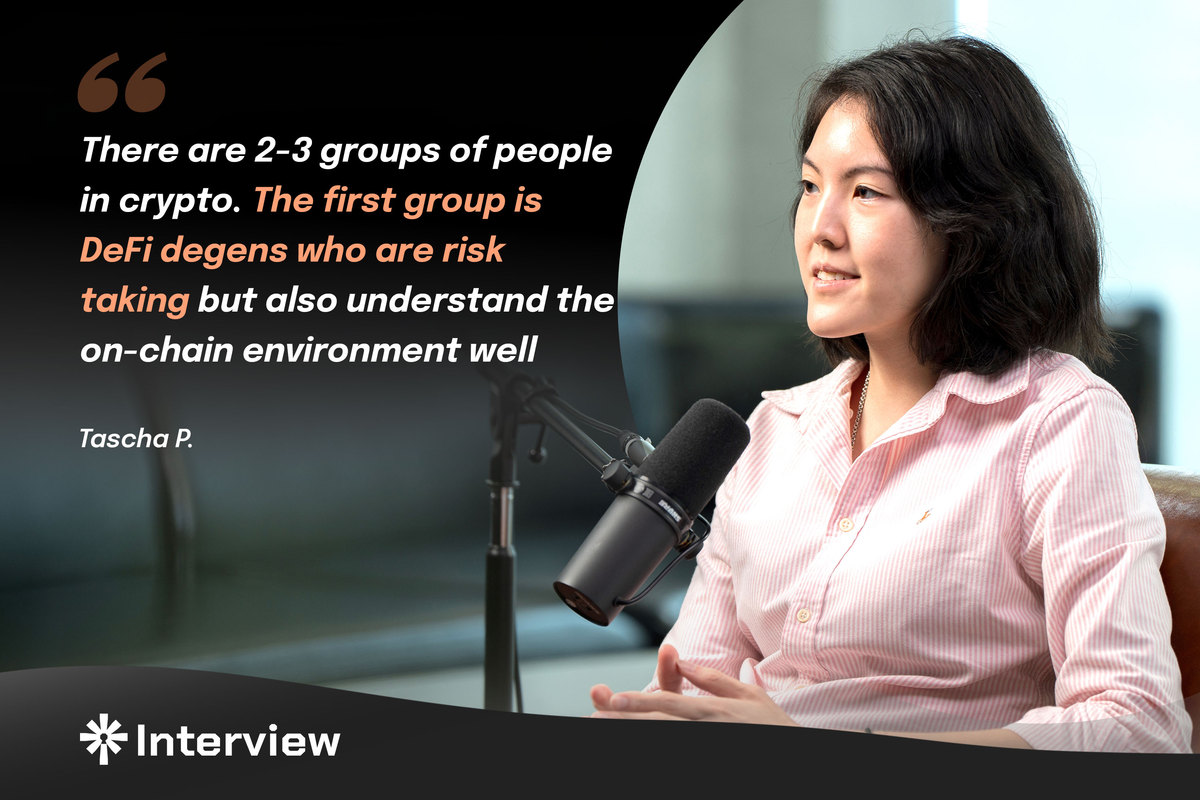
This approach is suitable for large investors, helping them protect their investment portfolios from price volatility over a certain period. Therefore, Stella is targeting a more mainstream user group, seeking investment channels to earn short-term profits.
In contrast to the above model, Stella allows users to farm with a maximum leverage of 4x for volatile LP pairs and 10x for stable LP pairs. This leverage limit is twice as high as the Alpha Homora platform and higher than the 3x limit on other DeFi platforms such as Tulip Protocol, Francium, or PembRock Finance.
However, Tascha admitted that leverage products, including the previous Alpha Homora, remained problems. One typical weakness of DeFi platforms is Impermanent Loss. Impermanent loss occurs when the price of a token changes compared to the price when the liquidity provider deposited that token in the pool.
For example, a liquidity pool consists of 500 USDT and BNB worth 500 USD. Suppose the value of BNB decreases to 300 USD. If the user only holds BNB, they incur a loss of 200 USD. If they provide liquidity, they incur a loss of 225.7 USD.
Therefore, Stella wants to create a safe space for users to use leverage. Tascha emphasizes that the project has changed its mission. To enhance transparency and safety, all Stella's future project products will be built separately from Stella.
In addition to transparency within the project, Stella emphasizes the importance of choosing partners in lending operations. Tascha revealed that Alpha Homora had integrated with Iron Bank before. At that time, Iron Bank provided lending services while Homora offered yield farming services. Due to the 2021 hack, Homora owed Iron Bank about 31.9 million USD.
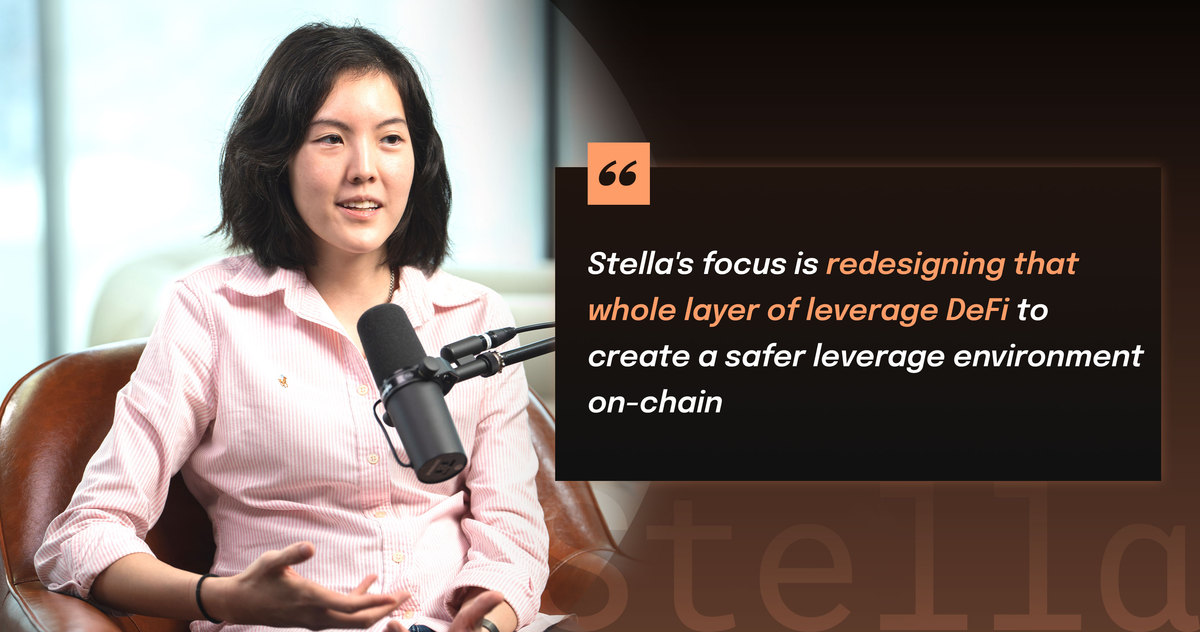
In February, Iron Bank proposed that Alpha Homora provide additional collateral for the debt. Iron Bank unilaterally changed the smart contract, preventing lenders on Alpha Homora from withdrawing funds. According to Tascha, users are taking legal action against Iron Bank after both parties failed to reach an agreement.
"We will not entrust key features to other projects. Today they may be good projects, but tomorrow they could be completely different, especially in the crypto space," shared Tascha P. In addition, Stella has committed to auditing the code three times by PeckShield and Trust Security to ensure high security.

Sharing with Interlock, Tascha believed that the metaverse is a broader concept than cryptocurrencies. Therefore, once the metaverse becomes more popular and familiar to users, the public will also find it easier to access cryptocurrencies.
First, the current issue with the metaverse is the relatively high cost of devices. In 2022, Meta launched a metaverse device called Quest Pro priced at $1,500. The device provides a combined virtual reality (VR) and augmented reality (AR) experience.
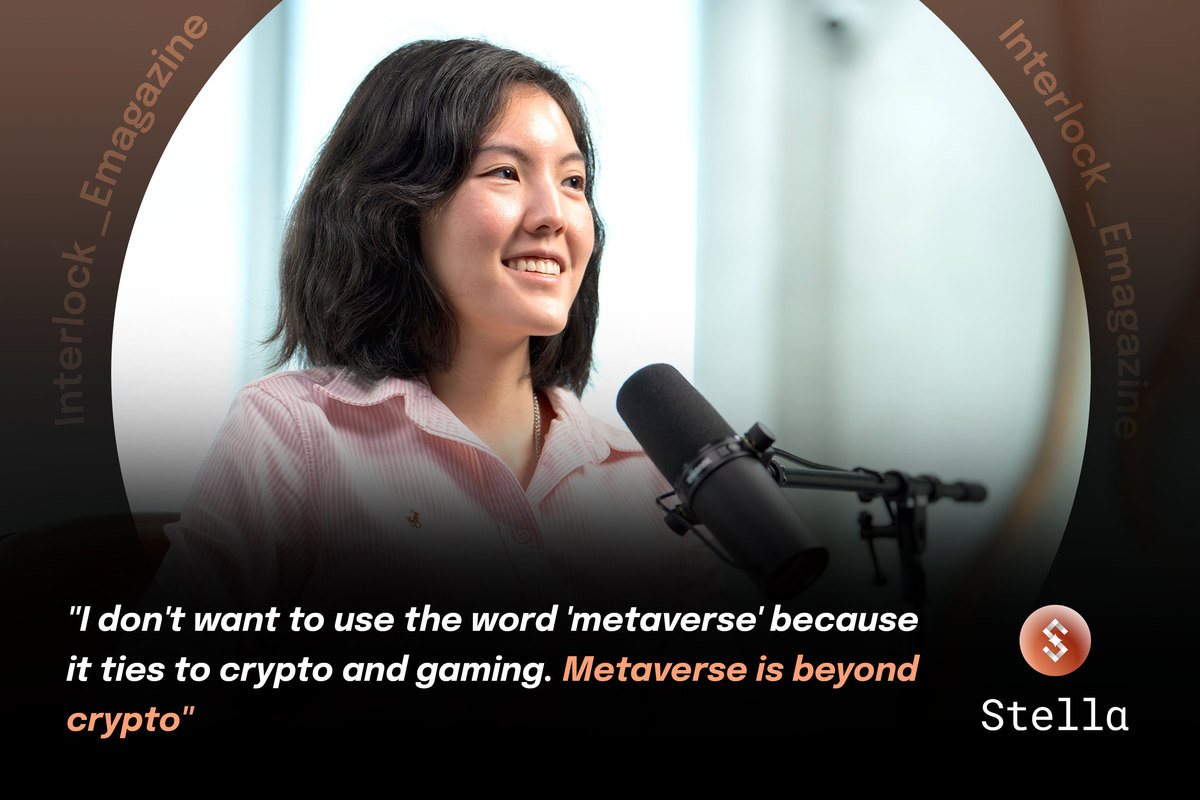
By March 2023, realizing that users were not enthusiastic about the product, Meta decided to reduce the price of Meta Quest Pro to $1,000. At the same time, Quest 2 also dropped from $500 to $430. Meanwhile, Apple Vision Pro had a starting price of $3,499, three times higher than Meta's product.
Tascha mentioned the case of the iPhone over the years. Previously, not many people could afford an iPhone because it was relatively expensive. But when the price of the iPhone became more affordable, its global coverage also increased.
Similarly, Tascha hopes that Web3 games or even the Web3 lifestyle will become social behaviors and become increasingly popular. At some point, the interaction between Web2 and Web3 will become seamless so that users don't realize they are interacting with the blockchain.
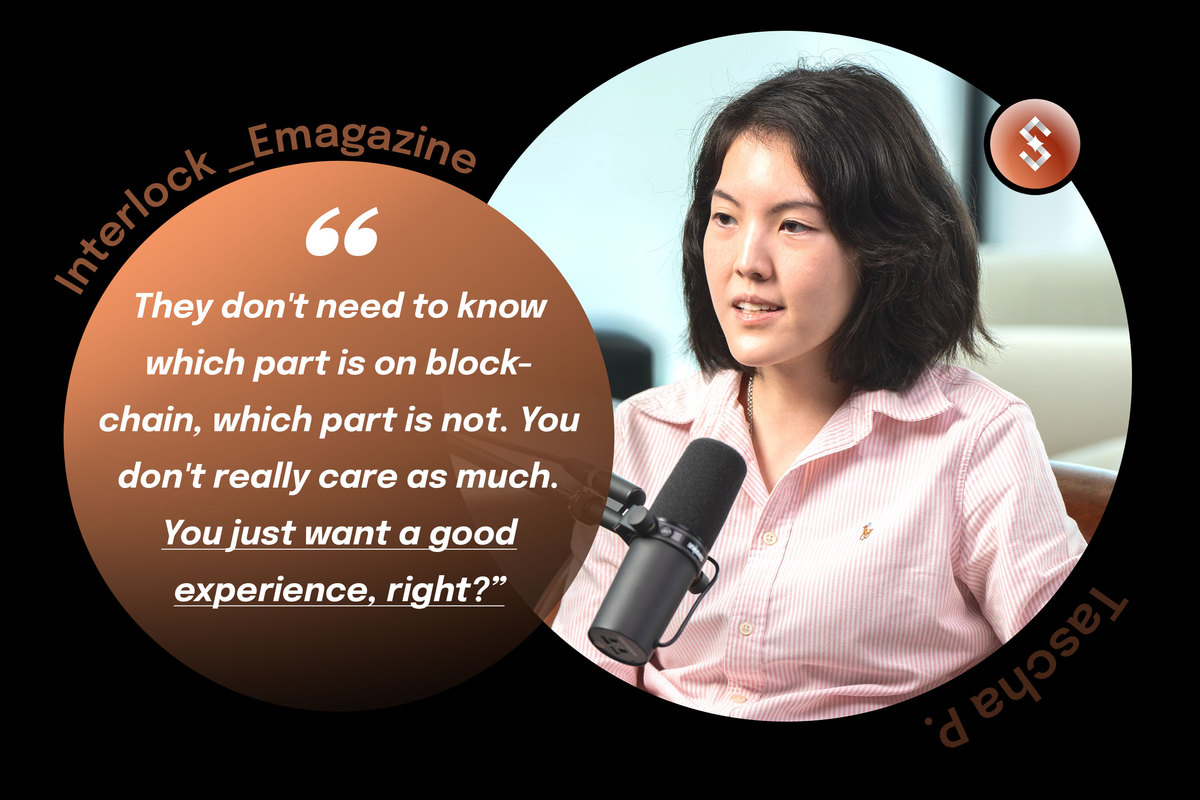
Therefore, she envisioned a scenario where Apple Vision Pro and the metaverse become a part of daily life. At that time, DeFi platforms will emerge within the metaverse, and the community can use services such as lending without even realizing it is a DeFi application.
In 1995, Steve Jobs, the father of Apple, once said, "The best technology is the one that becomes invisible." It means that technology will become a natural part of life. Regular users can easily experience products without giving a thought.
For example, in the 1990s, mobile phones were still unfamiliar to many people. Now, smartphones have become a ubiquitous item in daily life. Unlike before, no one needs to think about how to make a phone call, send a text message, or listen to music on an iPhone because the phone has become more "user-friendly."
Another example is the autonomous driving system. Self-driving cars look like familiar vehicles on the outside. Of course, these systems are equipped with sensors, drivetrains, complex algorithms, and software to control speed, braking, and steering. But the driver doesn't have to worry about those complex technologies.

Digging into the metaverse picture, Tascha reckoned that the gaming community will play an important role when DeFi platforms and the metaverse combine. In response to Interlock, she pointed out that in-game assets are the main concern of gamers. Players can bring these assets onto the blockchain, whether the game platform belongs to Web3 or Web2, and freely trade, stake, or lend these assets.
According to her, when they are not playing games, they can lend game characters or items on DeFi platforms. Other users can borrow these items to play and provide profits to the owners.
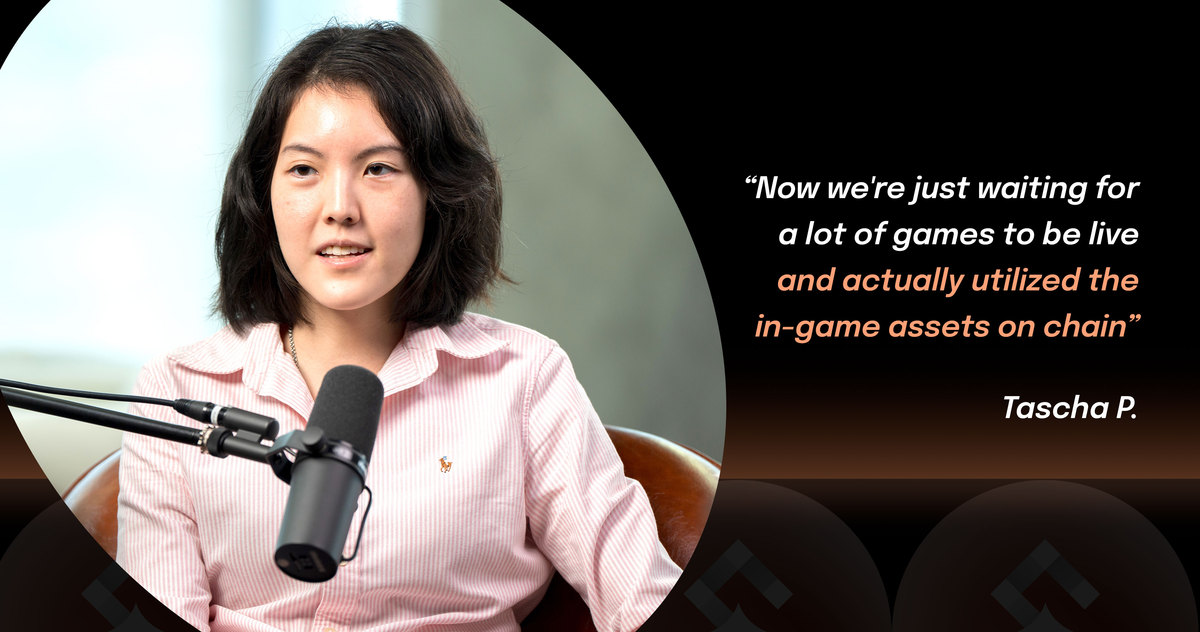
In reality, lending activities have become common in games and the metaverse. In platforms like The Sandbox and Decentraland, users can buy and sell land, rent assets, build shopping centers, stores, and more. Companies like Samsung, Adidas, and many traditional companies have purchased land in the metaverse to sell as NFT products.
Meanwhile, the real estate agency Metaverse Group spent $50,000 to purchase real estate in Decentraland and then leased it to other users. In contrast to Metaverse Group, TerraZero allows individuals and businesses to use NFT land as collateral for loans. When the debt is paid, TerraZero returns the NFT to the borrower.
Outside the metaverse realm, the cryptocurrency community is familiar with the practice of renting NFT shoes through the Move-to-Earn STEPN app. During the golden period of 2022, the price of a pair of STEPN shoes reached around $1,000. With such high prices, the demand for renting running shoes skyrocketed during that time.
Parallel to lending is the service of staking NFT items in games. Since July 2022, players of Axie Infinity can lock NFT land parcels in the game to receive AXS token rewards. This feature allows users to earn passive income even when they are not actively playing the game.
